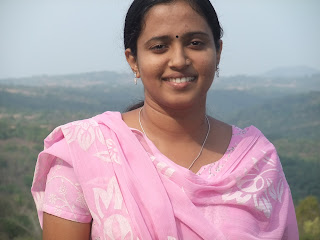Its strange isn't it, you think you are doing one thing when you are actually doing another. It has happened many times to me - I am drawn to something because of a reason I can identify with pinpoint precision - I go and do it, and come away with something totally different to what I had expected.
If I can explain further, I came to Kerala to learn more about how Naturopathy is applied in India, evaluate the results, see what it is good for, and integrate this knowledge into my practice - it seemed like purely business reasons. Good practical 'head related' stuff.
In addition to all of the above, I have grasped the real usefulness of Yoga therapy (subject of another blog), that is, the use of yoga in correcting imbalances, as well as a wide range of skills in the application of oils to joint problems, skin problems, sinus and allergy problems.
However, I don't think that is the REAL reason why I was here. Of all the places I have visited, I have special connection to India - and it is this connection that first drew me to come and study the herbal and naturopathic traditions here.
Even putting that to one side, a few days ago I visited the residences of the cooks and cleaners at the centre - they live in government provided housing, a very basic accommodation consisting of two rooms, a kitchen and a bedroom, both very sparsely furnished - they were all clearly delighted to see me - and laid out cake, tea, lemon water and many things, introducing me to their husbands, sons, daughters, mothers and fathers, no king or queen has received such a warm reception - I really felt like royalty.
On leaving today, it struck me that the real reason I came here was to meet these lovely people and have them touch my soul. Connections of the heart know no boundaries, and I feel that the real friends I have made have been in the kitchens at Soukhyam. Here, the busy-ness did not mean that there was no time for a warm smile and a friendly greeting.
To Prasida, Shantim Bundu and Raj - I have learned more from you than could ever be taught in a classroom - bless you and thankyou for looking after me for four weeks - I wanted for nothing - and seeing where you live has made your services seem even more remarkable.
I have learned from you all that the only real lessons is that of the heart and that there is no need for a common language when you speak from the heart.
If I can explain further, I came to Kerala to learn more about how Naturopathy is applied in India, evaluate the results, see what it is good for, and integrate this knowledge into my practice - it seemed like purely business reasons. Good practical 'head related' stuff.
In addition to all of the above, I have grasped the real usefulness of Yoga therapy (subject of another blog), that is, the use of yoga in correcting imbalances, as well as a wide range of skills in the application of oils to joint problems, skin problems, sinus and allergy problems.
However, I don't think that is the REAL reason why I was here. Of all the places I have visited, I have special connection to India - and it is this connection that first drew me to come and study the herbal and naturopathic traditions here.
Even putting that to one side, a few days ago I visited the residences of the cooks and cleaners at the centre - they live in government provided housing, a very basic accommodation consisting of two rooms, a kitchen and a bedroom, both very sparsely furnished - they were all clearly delighted to see me - and laid out cake, tea, lemon water and many things, introducing me to their husbands, sons, daughters, mothers and fathers, no king or queen has received such a warm reception - I really felt like royalty.
On leaving today, it struck me that the real reason I came here was to meet these lovely people and have them touch my soul. Connections of the heart know no boundaries, and I feel that the real friends I have made have been in the kitchens at Soukhyam. Here, the busy-ness did not mean that there was no time for a warm smile and a friendly greeting.
To Prasida, Shantim Bundu and Raj - I have learned more from you than could ever be taught in a classroom - bless you and thankyou for looking after me for four weeks - I wanted for nothing - and seeing where you live has made your services seem even more remarkable.
I have learned from you all that the only real lessons is that of the heart and that there is no need for a common language when you speak from the heart.









